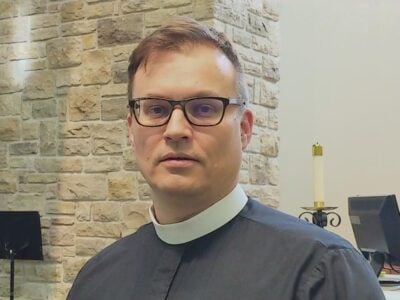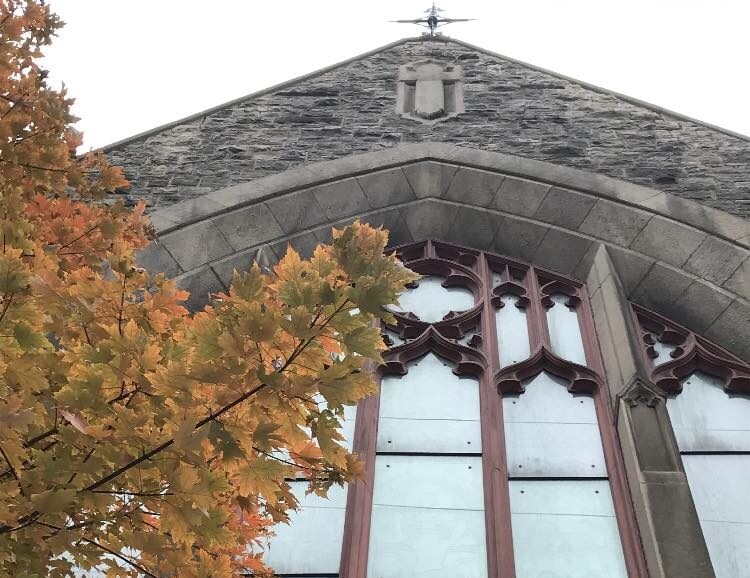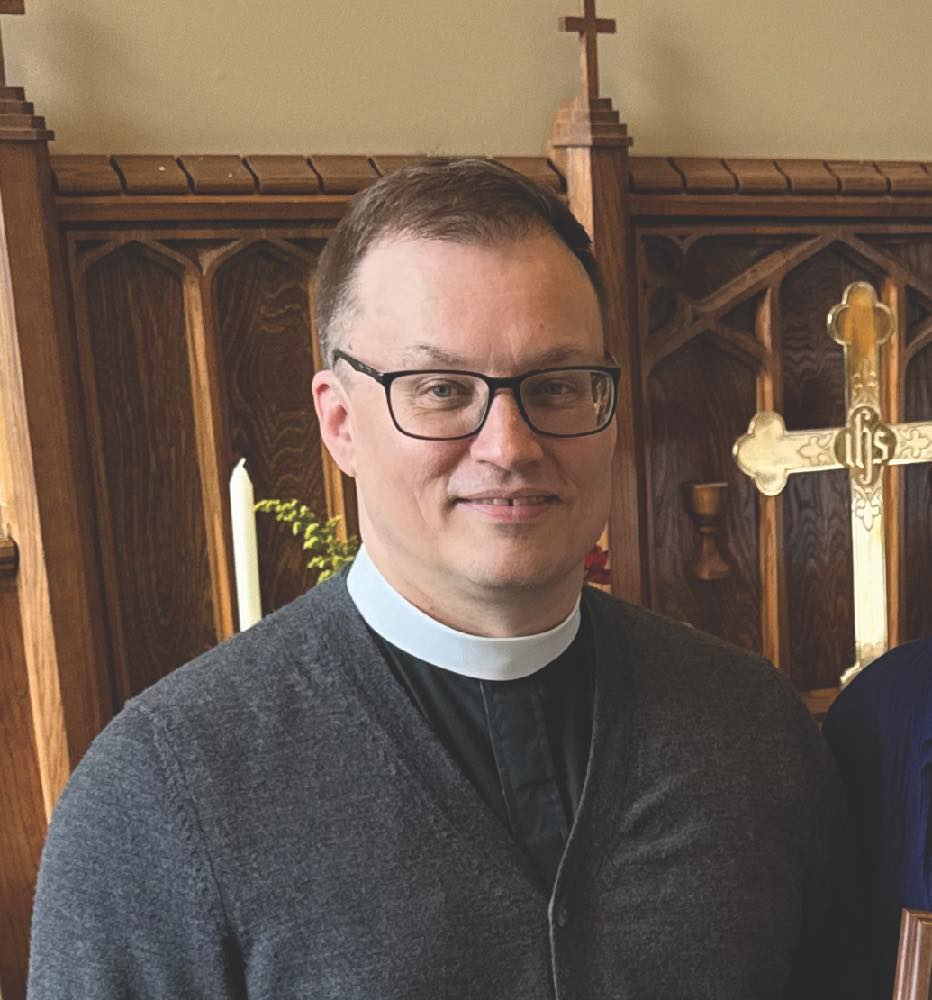Following Archbishop Shane Parker’s election as Primate of the Anglican Church of Canada in June, the Anglican Diocese of Ottawa will elect its 11th bishop on Feb. 28, 2026.
Perspective asked the Rev. Canon Stephen Silverthorne, the Clerical Synod Secretary, about how an episcopal election works. He thoughtfully answered our questions and walked us through all the proceedings.

Photo: Contributed
How do you discern if you should nominate someone?
First, to be a nominator requires that you be a member of Synod. The diocesan canons and bylaws specify who is a member, but in most cases, this is someone who is either a clergyperson in active service, or a lay person who was elected to be a member by their parish vestry. Others are members by virtue of serving on Diocesan Council, or by being appointed by the bishop. It’s best to check with the Synod Secretaries if you’re unsure of your membership status. Of course, those who aren’t members of Synod are welcome to share their thoughts on a potential nominee with their parish’s members of Synod.
Beyond that, many of the questions to ask yourself before nominating someone are the straightforward ones: is the proposed candidate a good manager, a good communicator, and a good pastor? Do they clearly love Christ and his church? Do they themselves discern that God is calling them to this role? But just as importantly, our discernment cannot neglect prayer. Many leaders in the Bible, like Esther or King David, might not have distinguished themselves from others by their past achievements. Yet, God raised them to leadership because they were people who would rise to the unique challenges of the moment. Discerning this capacity in others is more than a rational calculation, though it includes that. It is a genuine openness to the Spirit which can only be accessed through patient, prayerful listening. Our hope is that this kind of listening will play an important part in people’s discernment as they consider whether to nominate someone.
What are the required qualifications for candidates?
The core requirements for candidates are set out in the Canons of our Diocese and of the Ecclesiastic Province of Ontario. We’ve posted an FAQ document on the diocesan website [https://ottawa.anglican.ca/episcopal-elections-2026 ] outlining these in more detail. Briefly, however, candidates must be a cleric in good standing within the Anglican Communion, must be at least 30 years old, must have served as a priest for at least seven years, and must conform to the doctrine and discipline of the Anglican Church of Canada.
What is the process for nominating a candidate for the election?
The first step in nominating a person is to discuss it with the person you are hoping to nominate. Before all other considerations, a nominee must consent to being nominated, and must meet the minimum criteria I just mentioned. If both of these conditions are met, the next step is to download the nomination form from the diocesan website. This will be available later this fall. The form will ask for information on the nominee’s formal qualifications, such as their date of ordination. It will also require the signatures of at least five clergy and five lay members of Synod. These are the nominators, and by signing they assert their belief that the nominee is qualified to serve our church as bishop. Once completed, the form should be forwarded to the Secretaries of Synod. Nominations will be accepted up to the moment that the Electoral Synod is called to order, but only nominees whose form is submitted by the first nomination deadline on January 24, 2026, will be eligible to participate in the series of public meetings held in the runup to the election. These are intended to introduce nominees to the wider diocese and help us better to discern who God might be calling to the office of bishop.
I understand that the House of Bishops may play a role in the nomination process.
Yes, the nomination process allows for input from the House of Bishops. This input comes through our diocesan Supplementary Nominations Committee. That body is an ad hoc committee empowered by our canons to nominate up to two individuals to add to the list of nominees. The committee is given this power in order to enhance the diversity of candidates in the electoral process, allowing it to bring candidates forward who might not otherwise have been considered. The House of Bishops is an important resource for fulfilling that purpose, as it can help identify people from around our Communion who could be the right fit for our Diocese. So, the committee values the bishops’ advice very highly. It’s important to note however, that the bishops’ role is strictly advisory. While it values their opinion, the committee has the final say on who it may nominate based on its own evaluation of our diocesan needs and on the suitability of potential candidates.
What is required of the candidates in the election process?
The greatest requirement is a commitment to careful discernment. It is a privilege to serve as bishop, but it’s not an easy calling. Among other things, the office of bishop involves serving as a pastor, an administrator, a theologian, and a communicator. We believe in God’s providence and in God’s power to equip people for the roles they are called to, but it is a challenging role which requires candidates to consider carefully the costs involved. So, we encourage everyone in our diocese to pray that the Holy Spirit would embolden and encourage the right people to allow their names to be put forward for nomination.
Once candidates are nominated, they will be invited to respond to a set of questions prepared by our Episcopal Election Committee. These are intended to provide a platform for nominees to express their views on matters important to the church, and to give more information to electors as they discern who to vote for. Those whose nominations were received by the first nomination deadline will also be invited to participate in four public meetings, which will be held in the weeks leading up to the election. These will be moderated by a member of the Episcopal Election Committee and will be held at different locations throughout the diocese. The format for each will be consistent and will give nominees the chance to provide personal introductions as well as to reflect on their approach to the opportunities and challenges facing our Diocese.
How does the episcopal election work? Who votes?
All lay members of the 145th Annual Synod (to be held in October 2025) are eligible to vote in the Electoral Synod, as are all active clergy in our diocese. Some retired clergy will also be eligible to participate. Under our canons, only 10% of clergy who are retired as of August 1, 2025, will be eligible to vote in the Electoral Synod. In October, the Secretaries of Synod will initiate a process for selecting retired clergy for these purposes.
The Electoral Synod itself will be held at Christ Church Cathedral on February 28, 2026. The Synod will convene following a celebration of the Eucharist. Electors will be issued ballots and invited to vote for the nominee they feel is most qualified. Voting is conducted by orders. In other words, the votes of clergy and laity are counted separately. To be elected, a nominee must receive a majority of votes both among the clergy and among the laity. If a round of balloting does not achieve this, more rounds of balloting follow until a nominee has achieved a majority in both houses. The Most Reverend Anne Germond, Metropolitan of the Ecclesiastical Province of Ontario, will chair the Electoral Synod.


Saint Mary’s Church, Westmeath — Deanery of the Northwest